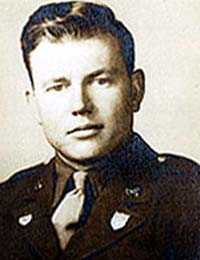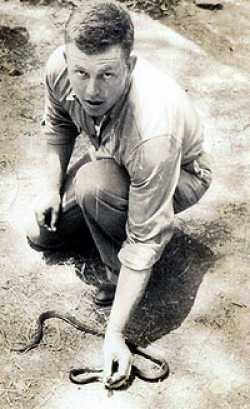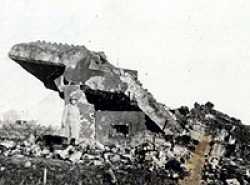The summer of my 17th year my father and I painted our house in preparation for sale. As the days grew long and my patience grew short my father began to tell me stories of the time he spent in service. My fascination with the men of such courage and the life struggles that created them was borne and to this day continues to grow. The recitation that follows is not a historical account but the recounting of an event as passed from father to daughter.
On January 19, 1942 twenty-three year old Duiel Jackson Miller left his home in Birmingham Alabama to join the army. Raised on a farm in Cullman, Alabama, he was a robust six foot, two hundred pound young man that turned down a football scholarship at Saint Bernard College to go to work for the National Biscuit Company driving a delivery truck. His experience driving a 1-ton truck was noted and after 3 months of basic training he was sent to Camp Gordon to the 4th Motorized Division where he was trained to drive a half track, pull an anti tank gun, and operate the weapon.
January 19, 1942 he and others of the 4th Infantry Division sailed for England and on June 6, 1944 he participated on the assault on Utah Beach.
UTAH BEACH, NORMANDY JUNE 6, 1944
Approaching the beach fire is coming over my head and I can see the explosions on the beach. The officer in charge of our landing craft is British and I can hear him shouting commands over the shells. We’re getting closer and I look over the side, an L.C. to my side has stopped and she drops her ramp and I watch as two tanks drive off and disappear. Just right off and under. My L.C. slows preparing to stop and I hear the British commander shouting, “Take them on in. If we don’t get in closer they’ll be at the bottom of the bloody channel.” (Not a direct quote.) The boat revs and we move in closer. I know if he’d dropped us that far out I’d gone under. He takes us in closer and drops the ramp, engine running I’m out from the drop.
My half-track is loaded down with ammunition and it’s slow going out of the water even with the back tracks. At one point I bogged down from the added weight of the ammunition and I’m receiving fire. I can see the guys making their way in and I’m like a sitting duck. Working franticly back and forth I’m able to work free and move forward. Like everyone else I want off that beach. You think you’ll be safe if you can get out of the landing area, but that’s not necessarily true. After getting off the landing area I’m trying to make my way off the beach when a shell goes off to my side and hot burning shell fragments come down on my half-track landing in the back on the stored ammunition. I never even thought about it, I just jumped and using my helmet, I shoveled dirt and sand on the burning fragments. It never occurred to me to use the entrenching shovel. When I was sure I wasn’t going to blow up I got back in and moved inland.
Duiel J. Miller received citations for his bravery and determination, for not abandoning his vehicle and persevering while under fire. He felt he had been lucky on June 6, 1944. “I lost a lot of buddies that day.” (A direct quote.)
Submitted by his daughter Jane Miller






